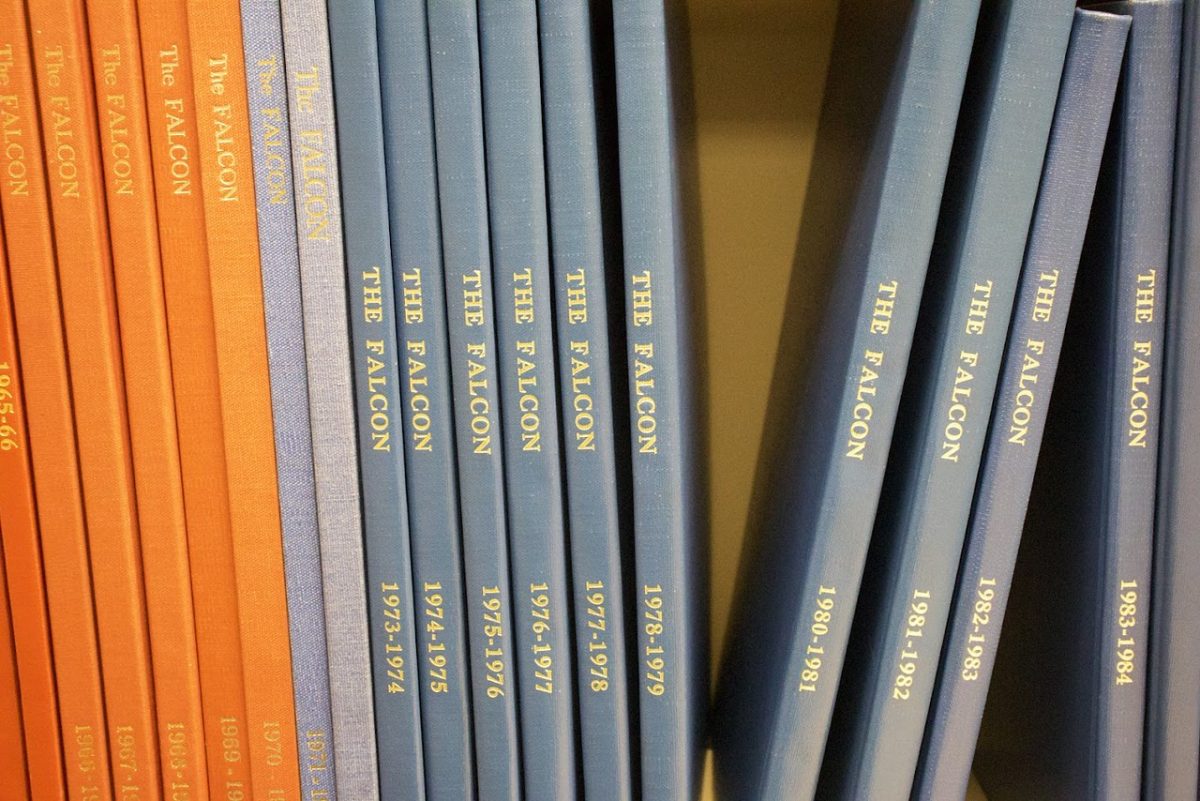
You are reading The Falcon on a web-page. This newspaper, student-run at Seattle Pacific University, has been online and easily accessible since 2001, but those who want to look at SPU before the 21st century have to deal with a whole different kind of page: the old and brittle ones. Less clicks, more rips.
Old copies of The Falcon can only be found in the archives of Ames Library. Soon, they will be available for perusal online, thanks to business and social sciences librarian Janet Hauck, who successfully applied for the Washington Digital Heritage Grant.
The Washington State Library awards yearly grants up to $15,000 for digitization – online immortalization – to multiple Washington libraries. Hauck, applying and calculating through SPU’s Office of Sponsored Programs, received $14,980, $20 shy of the maximum award.
The digitization process, similar to that of scanning a physical document or photo downloading it to a device, is complicated by the big and brittle nature of The Falcon’s many pages.
“This grant will digitize all of the 100 years worth of the student newspaper, The Falcon,” Hauck said. “In order to do that, you need to physically put each page front and back on a flatbed scanner and scan it according to certain specifications, such as the file size, black and white or color or grayscale, how many dots per inch, pixels.”
91 volumes will be processed, year by year, then applied with optical character recognition software, making it possible to search by word over a century of SPU history. Names, topics, headlines, keywords – anything anyone wants to see will be theirs for the finding.
In past years, researchers devoted long hours to carefully flipping through archived copies, a process that will become increasingly efficient as The Falcon is digitized.
Lou Bridges, intern to Hauck, is a senior history major on the museum studies track.
“Both curious students and researchers will be able to use The Falcon without having to physically go to the archives and look through hundreds of pages to find information about SPU history,” Bridges said. “As a whole, digitization projects like this help researchers everywhere gain a better understanding of institutions like SPU.”
Researchers across the Pacific Northwest set to benefit from this archival include historians, journalists and professors of religion and theology.

Last year alone, a Falcon article and presentation of a two-year research project involved students perusing physical copies of The Falcon, with a focus of LGBTQIA+ issues and representation through SPU’s history.
“At that time, the students had to go through page by page,” Hauck said. “Once these are digitized, a class could gather that kind of information so much more quickly and, you know, set it in context with other other universities.”
Rebecca Hughes, associate professor and chair of the history department, wrote a support letter for SPU to receive the grant.
“Oftentimes, students come and go after four years and don’t really know the past, what other students have done,” Hughes said. “I think it could be a fantastic source for so many other projects, whether it be understanding racial diversity, religious life, gendered experiences, you know, a whole variety of different topics.”
Researchers and curious readers will be able to see SPU’s history through any particular decade. The value of being able to access the 1990s, the end of the Cold War, 9/11 and more periods of history through the eyes of SPU’s students is immeasurable.
“The Falcon is a major resource for SPU history and student conversations and opinions,” Bridges said. “Digitization projects like this are important, and I’m super glad The Falcon is being recognized and preserved in this way.”
The grant will be used by the Ames Library to outsource the digitization, purchase an in-house large scale scanner, hire a student assistant and present the results at a conference.
A total of $152,476 was awarded to 13 libraries for digitization, including Jamestown S’Klallam Tribe, the Seattle Art Museum and Washington State University. The funding will support digitization of documents, photos, objects and more all over Washington.
“This is just a beautiful record,” Hughes said.
SPU’s Digital Commons, where the newspaper files will be housed, showcase doctoral dissertations, faculty publications, digitized catalogs and yearbooks back to the early 1900s. When the process is complete, students will find digital copies of The Falcon going back to 1927 here.
“Being able to have that information widely available, I mean, I think everyone benefits from that,” Hughes said.
















































































